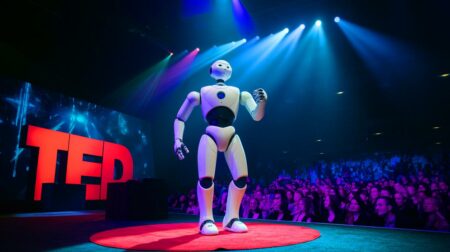| IN A NUTSHELL |
|
In today’s rapidly evolving technological landscape, the integration of robotics and virtual reality is transforming industries across the globe. One such groundbreaking development is taking place at Leyland Trucks in the United Kingdom, where Extend Robotics is testing its VR-controlled robots. This innovative approach aims to enhance both safety and efficiency in truck production, marking a significant milestone in industrial automation. As industries strive to blend cutting-edge technology with traditional manufacturing processes, Leyland Trucks and Extend Robotics stand at the forefront of this exciting evolution.
Transforming Safety in Truck Manufacturing
The collaboration between London-based Extend Robotics and Leyland Trucks, a subsidiary of PACCAR Inc., represents a significant leap forward in enhancing production safety. By employing VR-controlled robots, the aim is to mitigate risks associated with hazardous tasks in the truck assembly process. One of the critical areas of focus is the Master Service Disconnect (MSD), which involves working around high-voltage circuits.
Traditionally, such tasks required human operators to don extensive safety gear, including insulating gloves and protective suits, which could take up to 20 minutes to put on. This not only consumed valuable time but also imposed physical demands on the workers. However, with the integration of tele-operable robots, these tasks can be performed more efficiently and safely. As Namrata Lachman from Extend Robotics highlighted, the ability to tele-operate or fully automate these processes can significantly reduce the risk to human workers.
During the feasibility study, Extend Robotics successfully demonstrated the capability of its robots to manipulate and install the MSD using VR headsets. This trial not only showcased the technological prowess of these robots but also underscored the potential for a safer working environment.
Enhancing User Experience Through Intuitive Technology
The user-friendliness of Extend Robotics’ VR systems is a testament to its potential for widespread adoption in industrial settings. Leyland employees, including those with little to no experience in virtual reality, found the system remarkably intuitive. One employee remarked on the immersive nature of the VR experience, comparing the sensation to actually using their own hands within the virtual environment.
During a comprehensive robotics workshop, senior executives from both Leyland and PACCAR explored the broader applications of this technology. The workshop showcased the ability of autonomous AI systems to perform complex tasks, such as moving colored blocks, with precision. This demonstration highlighted the potential for these systems to learn from human operators and automate additional production processes, further enhancing productivity and safety.
By integrating such technology, Leyland Trucks aims to increase its production capacity significantly, potentially reaching a target of producing 100 or more trucks per day. This ambitious goal underscores the transformative impact that intuitive, user-friendly technology can have on traditional manufacturing processes.
Exploring the Future of Industrial Automation
The partnership between Extend Robotics and Leyland Trucks is not just about immediate gains in safety and efficiency; it is a forward-looking initiative that explores the broader implications of industrial automation. The successful deployment of VR-controlled robots at Leyland’s Preston plant represents a pivotal step in the potential integration of full automation in truck manufacturing.
As industries increasingly turn to automation to address labor shortages and enhance operational efficiency, the insights gained from this collaboration could serve as a blueprint for other manufacturing sectors. By leveraging advanced technology, companies can not only improve safety standards but also enhance their competitive edge in the global market.
This initiative also reflects a growing trend towards incorporating AI and automation in various industrial applications, paving the way for a future where human-robot collaboration becomes the norm rather than the exception. The insights and data collected from the Leyland trial will undoubtedly inform future developments in industrial automation.
The Road Ahead: Challenges and Opportunities
While the potential benefits of integrating VR-controlled robots into the manufacturing process are substantial, the road to full implementation is not without challenges. Ensuring seamless integration with existing systems, addressing potential cybersecurity concerns, and achieving widespread employee acceptance are critical factors that need careful consideration.
However, the opportunities presented by this technology are equally compelling. By reducing the physical demands placed on human workers and enhancing safety, companies can improve employee satisfaction and retention. Additionally, the increased production capacity resulting from automation can lead to significant economic benefits.
As Leyland Trucks and Extend Robotics continue their collaboration, the industry will be watching closely to see how these innovative technologies reshape the landscape of truck manufacturing. The successful integration of VR-controlled robotics could serve as a catalyst for broader adoption across various manufacturing sectors.
As we witness the dawn of a new era in industrial automation, one must ponder: How will the integration of advanced technologies redefine the roles of human workers in the factories of the future?
Did you like it? 4.3/5 (21)








Wow, are we really being replaced by robots? 😲
How will this affect jobs at the plant?
Is this really a safe move for the workers? 🤔
It’s like a sci-fi movie come to life! 🎬
So the robots are doing the dangerous stuff, but what about quality control?
I hope this means faster delivery times for my truck order!